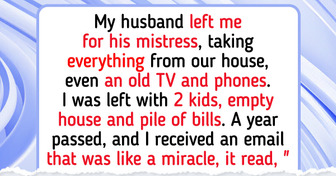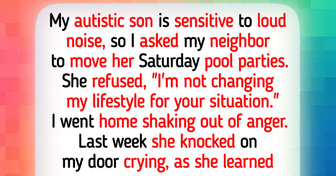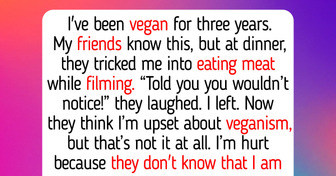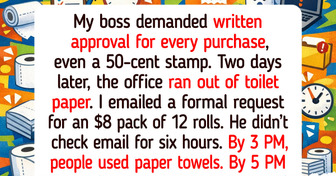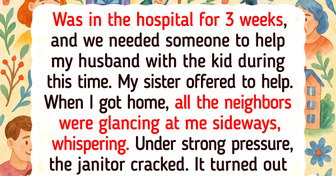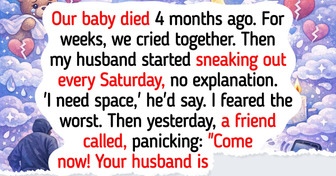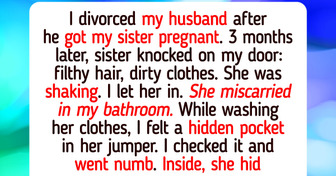My Stepdaughter’s Fiancé Desperately Wants Kids, but He Doesn’t Know She’s Infertile

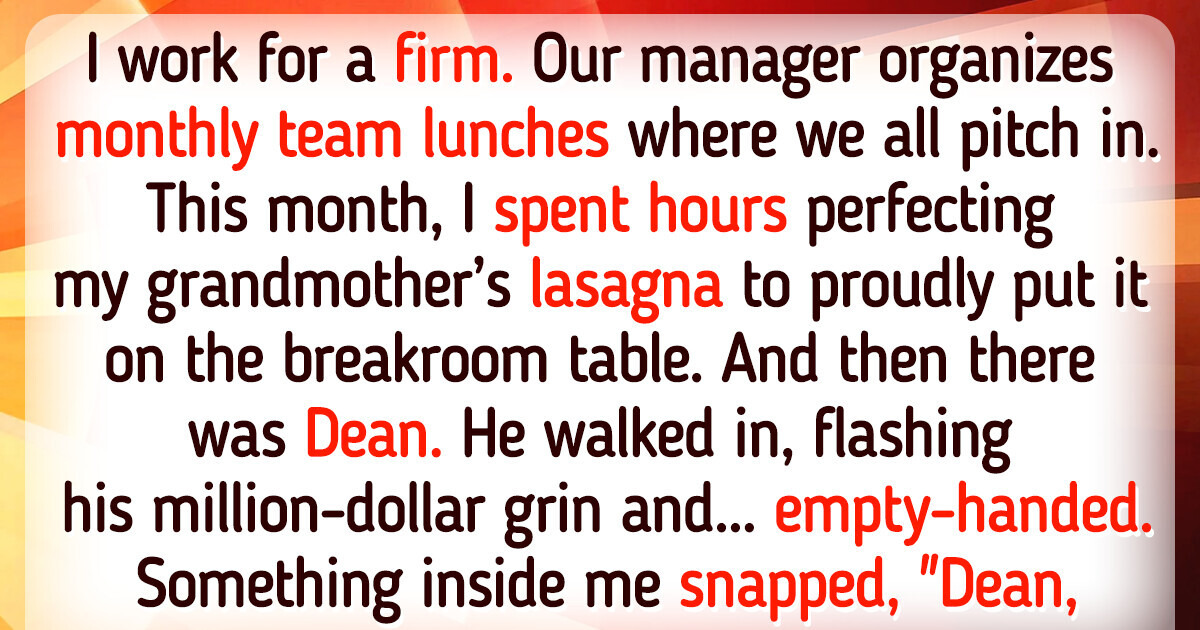
Team lunches are more than just food—they’re about effort and respect. But what happens when one colleague brings nothing but charm and an appetite? Some sharp words may fill in the room—and leave everyone speechless. Is it fine to stand your ground, or does such an approach go too far? Let’s unpack this thought-provoking workplace drama.
Hi Bright Side,
I work in a boutique advertising firm—small team, big personalities. To keep the camaraderie alive, our manager organizes monthly team lunches where we all pitch in. These events are a big deal for us: creative energy fueled by food, laughter, and maybe a little gossip.
This month, the theme was “Family Recipes,” and everyone was buzzing about what they’d bring. I spent hours perfecting my grandmother’s lasagna—a dish I don’t share lightly—because I wanted to bring something meaningful. I’m not the best cook, so the effort was real to proudly put my carefully layered creation on the breakroom table.
And then there was Dean.

Dean is our resident smooth-talker. He’s in his mid-thirties, sharp-dressed, and perpetually balancing charm with just a hint of arrogance. Everyone in the office has a soft spot for him, though lately, I’d noticed his “contributions” at these events were less than stellar. Last month, when the theme was “Comfort Foods,” Dean showed up with a single raw onion, claiming it was a “metaphor for life” because it had “layers.” I rolled my eyes but let it slide. Everyone did. It was Dean.
This time, however, he didn’t even bother with the onion. He walked in, flashing his million-dollar grin, empty-handed and declared, “Can’t wait to see what culinary magic you geniuses have cooked up!” Before anyone could say a word, he grabbed a plate and started loading up. A monstrous scoop of Karen’s chicken curry. Two slices of Tom’s homemade bread. And three absurdly generous squares of my lasagna—the lasagna I had stayed up half the night making.
Something inside me snapped.
“Dean,” I said, trying to keep my voice even, “I didn’t see what you brought. What dish did you contribute?”
He didn’t even look up as he piled another ladle of curry on his plate. “Oh, I’m just here to support you guys. Can’t trust myself to cook anything worth eating, you know?” He laughed, like it was charming. Like it was okay.
The room went quiet, save for the sound of plastic utensils scraping food onto plates. Dean froze for a second, his smile faltering.
“Supporting us?” I repeated, my tone sharp now. “Dean, this isn’t a charity buffet. If you’re going to eat the food, you need to contribute something. Anything. Even if it’s just showing some effort.”
Dean’s face turned red, though he tried to play it off with a half-hearted chuckle. “Come on, no need to get dramatic. It’s just food.”
“Not when we all worked hard on it,” I shot back, my frustration bubbling over. “It’s not fair to take advantage of everyone’s efforts while you bring nothing. If you had time to iron that shirt and pick out a designer tie this morning, you had time to grab some chips or bake cookies.”

Someone stifled a snort. Dean glanced around the room, clearly uncomfortable now, the charm finally slipping from his face. “I didn’t realize it was that big of a deal,” he muttered, abandoning his plate on the table. “I’ve got a meeting to prep for anyway.”
He left the breakroom, and the awkwardness hung in the air. I felt a mixture of vindication and guilt. A few coworkers murmured their agreement—quiet “she’s right” comments that made me feel less like a villain. But Karen gave me a look that said, Really? Did you have to go that far?
Now I’m conflicted. Was I wrong to call him out in front of everyone? Maybe I should’ve pulled him aside, been more discreet. But then again, how long do you let someone freeload before you say something? It’s not about the food—it’s about respect. And I’m not sure Dean got the message at all.
Thank you in advance,
Angelina
Dear Angelina,
It’s clear that you care deeply about fairness, respect, and the camaraderie of your team, which makes your frustration with Dean understandable. You stood up for yourself and your team. You set a boundary, which is a healthy and necessary skill in any workplace. Let’s unpack the situation and consider how to move forward constructively.
To ease any lingering tension in the office and maintain your professional relationships, consider taking these steps:
Follow up with Dean privately: Acknowledge that the situation may have been awkward, but reiterate your point. For example:
“Hey Dean, I wanted to follow up about the team lunch. I realize calling you out in front of everyone might have been uncomfortable, and I didn’t mean to embarrass you. I just wanted to make sure you understood that everyone puts in effort, and it felt unfair when you didn’t contribute. I’d appreciate it if you could bring something next time—it doesn’t have to be a big deal, but even small gestures go a long way.”
This shows you’re willing to mend fences while still standing by your principles.
Talk to your manager: If this dynamic is a recurring problem, it might be worth discussing with your manager. They could send a friendly reminder about the purpose of team lunches and the expectation that everyone participates. This removes the onus from you to enforce group norms and places it back on leadership.
Adjust expectations (if necessary): If Dean continues to brush off team norms, you might need to lower your expectations of him. Not everyone values group activities in the same way, and while it’s frustrating, focusing your energy on those who contribute positively might save you from further frustration.
You’re not a villain for expecting fairness—it’s how teams function best. By addressing the situation directly (even if imperfectly), you sparked a conversation about respect and contribution. With a little follow-up and communication, you can turn this awkward moment into an opportunity for growth and better understanding within your team.
Office dynamics can heat up over unexpected choices, like the woman who skipped a bra at work and ended up in the spotlight of judgmental stares.

